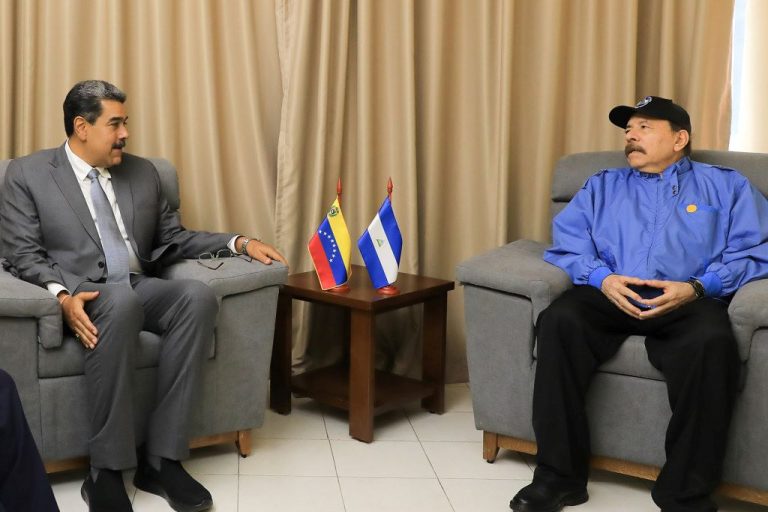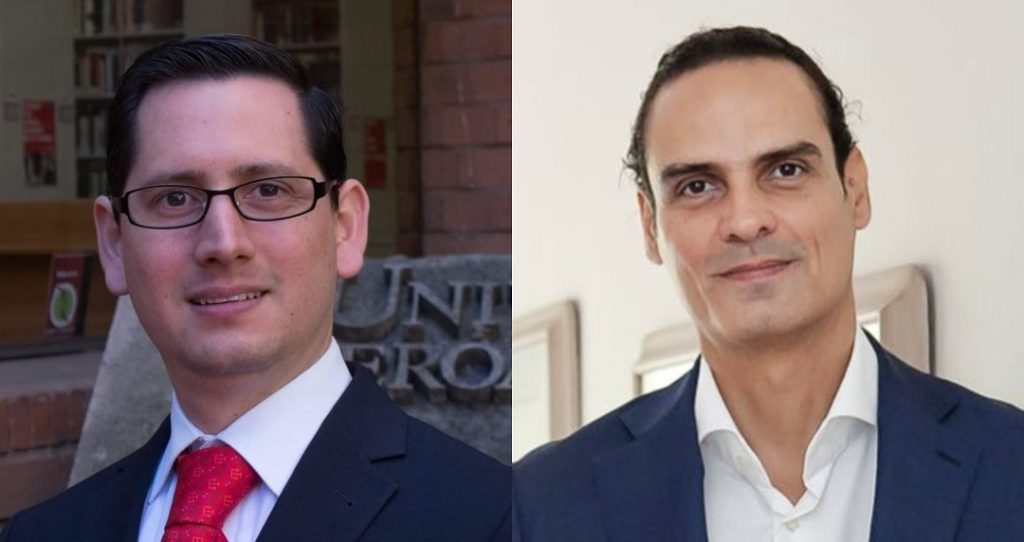29 de septiembre 2023

“NicaraguAmor” Cultural Caravan for Nicaraguans in the USA

PUBLICIDAD 1M
PUBLICIDAD 4D
PUBLICIDAD 5D
“The government has set its foundations on a powder keg,” Pineda warns, while Abrao insists: “The spirit of democratic resistance must be m maintained"

On Thursday, September 28, the regime of Daniel Ortega and Rosario Murillo will mark five years of the de facto Police State they’ve imposed on Nicaragua. During this time, Nicaraguans have seen all their citizen freedoms curtailed. Nonetheless, human rights experts point out that the dictatorship and the police state “aren’t sustainable” in Nicaragua over the long run.
“Any person who sees an injustice can be forced into silence, but that doesn’t mean they agree. And that disagreement creates a gap, meaning the government is setting its foundations on a powder keg,” Nicaraguan human rights expert Uriel Pineda declared. Pineda, who currently lives in Mexico, had his license to practice law annulled by the Ortega regime.
“Although it appears they can control everything, in the face of any incident – we could say any chance occurrence – they’re not going to have the capacity to contain it,” he predicted.
“Not all the public employees,” Pineda continued, “are willingly create or form part of these repressive policies. Instead, they find themselves obligated by different factors to do so – for the security of their families, to have a job, and be able to maintain their household.”
“So, that makes the [government] project unsustainable. They only have one road, and that’s a dialogue.” Pineda broached these ideas on a panel he shared with Paulo Abrao, former Executive Secretary of the Inter-American Commission for Human Rights. Their conversation was aired on the internet television news program Esta Noche, which is transmitted over YouTube due to the television censorship of the Ortega dictatorship.
“Over time, dictatorships wear thin. The community begins to generate ever greater awareness that it’s unbearable living in the absence of basic freedoms,” stressed Brazilian activist Abrao.
“The spirit of democratic resistance must be maintained, because that’s the key to opening a process of democratic transition inside the country,” he added.
He recalled that during the 80s and 90s in Central and South America, societies “confronted” and “defeated” dictatorships or civil conflicts by accumulating “forces of democratic opposition.”
“[The countries’] eventual installation of their democracies began with a push towards a democratic transition. I hope that span of time in Nicaragua won’t be as long,” he commented.
Pineda noted that the dictatorship’s ”unsustainability” can be glimpsed through events like their inability to begin operations at the “Casimiro Sotelo” University they abruptly installed on the campus of the prestigious Central American University (UCA). The Ortega regime confiscated the UCA on August 16, after cancelling the Jesuit university’s legal status. They then declared it a “new” state university, the “Casimiro Sotelo.”
“There are professors who aren’t willing to participate in this educational project. The students don’t want to be there. This is an example of what’s happening in different parts of the country, where the government doesn’t have a wide margin of influence, for one reason or another,” stated the expert.
“The confiscation [and rebranding] had already been implemented in 27 previous private universities. They cancelled the legal registry of all of them and took over the administration. The certain thing is that the UCA has represented a great challenge for the regime in terms of the continuity of its functioning.”
The authorities of the new university recently postponed the return to classes for the second time, now indefinitely. Meanwhile, over 5,000 students have been left in limbo. At least half of them have requested admission to Jesuit Universities in El Salvador and Guatemala, in order to get full credit for the classes they’ve taken and be able to continue their studies. But there’s still no short-term solution for their hopes.

“Today, Nicaragua is the harshest dictatorship in our region,” Abrao assured, explaining that Ortega has surpassed the actions of the new mode of dictatorships, such as that of Nicolas Maduro in Venezuela and Miguel Diaz-Canel in Cuba.
“Comparing dictatorships is a very relative thing. The historical Cuban process has its peculiarities, because it was shaped within the historic context of the Cold War, when the world was bipolar. But Nicaragua wasn’t,” he theorized.
“Despite all the evolution in international law, and all the charters and documents that have been drawn up internationally in terms of preserving the democratic principles, today, Nicaragua is implementing measures that are totally incompatible with modern times.”
Under the police state, the Nicaraguan regime has criminalized all popular demonstrations; unleashed a relentless pursuit of the opposition; closed and confiscated media outlets, NGOs, trade associations and universities; abducted, put on trial and sentenced anyone who represented a leader or dissident voice; and banished and stripped of their nationality over 300 dissident Nicaraguans.
“If we look at the situation in Venezuela, it’s a country where at least a dialogue table has been established and activated at times. The opposition participated in the last elections. In Nicaragua, all the opposition parties were closed and criminalized,” Abrao underlined.
“It’s a level of dictatorial violence so great that, honestly, I’m not sure if there are any clear comparisons,” he declared.
Abrao expressed his view that the Ortega police state and political project “took its inspiration” from the “Cuban model”: promote territorial control; establish the logic of one-party rule; disallow public freedoms; and construct international political ties with countries beyond the hemisphere that “also don’t have any cultural closeness to our Latin American societies.”
To the Brazilian, these diplomatic approaches “are artificial,” because “they have no echo in the public sentiment, and are foreign to their values, their principles or any kind of internal identity, vision of the world or concept of society.”
The Ortega government “is seeking political support in other countries that don’t share the same values and principles of his own society,” the Brazilian observed.
Since 2018, Ortega has forged ties with a number of countries that have anti-democratic governments, such as Iran, Russia, mainland China, North Korea, Belarus and other small nations that were formerly part of the Soviet Union. These “relationships” haven’t brought any economic benefits to Nicaraguans, in terms of economic aid, donations or loans. In these areas, the government ties have added up to zero over the last five years.
This article was originally published in Spanish in Confidencial and translated by Havana Times.
PUBLICIDAD 3M
Confidencial es un diario digital nicaragüense, de formato multimedia, fundado por Carlos F. Chamorro en junio de 1996. Inició como un semanario impreso y hoy es un medio de referencia regional con información, análisis, entrevistas, perfiles, reportajes e investigaciones sobre Nicaragua, informando desde el exilio por la persecución política de la dictadura de Daniel Ortega y Rosario Murillo.
PUBLICIDAD 3D